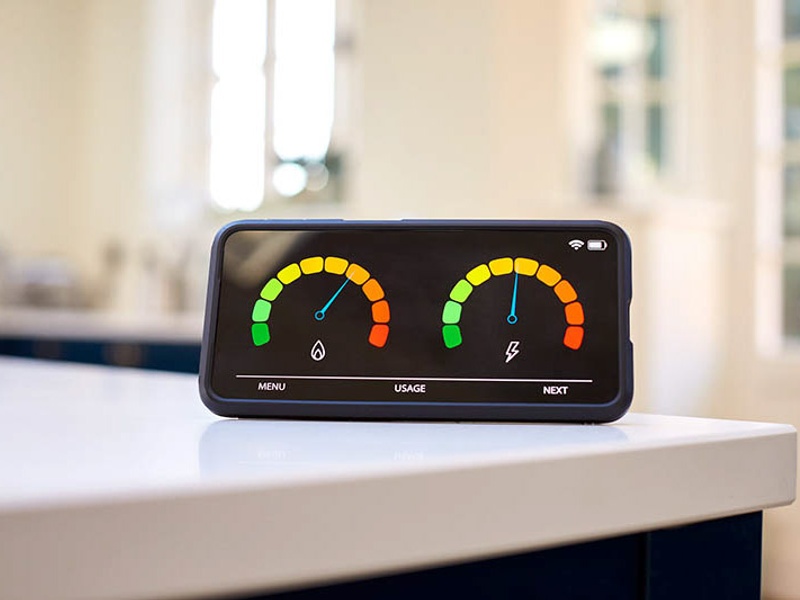Smart Meter Surge and it’s Sustainability Solutions
Looking into the future, market growth and surge of the smart meter
Posted June 28, 2024
Where it all began
As we all know, the concept of the smart meter of freely tracking your utilities usage, especially in a cost-of-living crisis is essential. However, with the fast-growing digital world and ever-evolving technological advancements of the 21stCentury, endless variations of the electronic device are entering the market. For all industries, constant new upgrades in technology are improving overall efficiency and data management, and the utilities sector is benefiting greatly from technical improvements in digitalisation. The growing installation of smart meters is not only benefiting communities with the management of their gas, electric and water usage, but is having a knock-on effect and contributing to appreciable sustainability improvements worldwide.
Are you aware of such rapid market growth?
The Global Smart Meter market size was valued at $27.21 billion in 2022 and is expected to hit $65.31 billion by 2032. The market is constantly scaling up in size, encouraging lower energy consumption, more accurate bills and saving initiatives for all involved.
Today, despite increase in awareness around sustainability, many people continue to contribute to the damaging issues worldwide. Human activity and everyday energy usage is causing unprecedented change to our environment, and the constant production of harmful emissions and excessive energy consumption is playing a key role in restricting the progress of tackling the climate change issue. Yet, as expected, the rise in smart meter infrastructure is helping combat the climate change challenge we face every single day.
Have you thought about Smart Meter Installation?
The digital devices are giving homeowners real-time visibility of how much energy they’re using, encouraging households to lower their energy usage to what they really need. In a surrounding environment of soaring inflation rates, methods of budgeting and saving cash are travelling quickly, and this is fuelling instalments of more smart meters! In line with this and the global economic crisis, tech improvements are making more people aware of their energy solutions; ultimately lowering carbon emissions and water footprints in the long term.
GOOD NEWS!! The number of global smart meter installations has surged in recent years. In fact, numbers of US installations were projected to reach 128 million by the end of 2023, and the forecast for 2025 is estimated at around 135 million.
A Step Towards Decarbonisation and Greener Energy Usage – Why Are Smart Meters Valuable in Achieving NET ZERO?
As well as urbanisation, we all know the water industry can be marked as a key factor contributing to the climate change adaptation challenge. Today, water systems are a major source of global greenhouse gas emissions, yet with promising leaps forward with technology, the industry has the potential to become one of the fastest sectors to decarbonize and act as a blueprint for others.
In a nutshell, metering is valuable in helping with the management of water usage and supplies during peak demand. This is particularly important in line with global warming, as alarming statistics show that in 2019, 38% of the EU population was affected by water scarcity. Additionally, more recently in 2022, Italy announced a state of emergency in some regions due to water shortages which restricted water consumption in other cities. – These facts highlight the growing importance of controlling global water consumption and the danger and consequence of wasting water in the long term, which demonstrates the essential need for smart metering to combat water and wastewater management.
The specific data coming from such metering devices is providing detailed information on water usage, granting an easier opportunity for managing wastewater and benefiting consumers by reducing unnecessary financial costs and unwanted damaging carbon footprints.
These days, access to all things digital is becoming more efficient, and smart meter readings are now reachable through mobile apps for convenience towards consumers, and app technology is proving efficient in managing overall consumption and energy bills; ultimately discouraging excessive water and energy usage.
Smart meters are also helping improve issues with water quality by identifying and diluting contamination elements such as nitrate and sodium. As well as this, the technology has proven useful in leak detection and therefore preventing extreme water damage and high repair costs.
A Future Perspective
Smart meters are definitely on the radar for water companies within the next 10 years. Already, in 2024 there are mass rollouts planned and leading manufacturers such as Xylem are preparing for increased demand.
Overall, the future is expected to see further advancements in smart meter technology that will incorporate innovative approaches to AI; excelling in efficiency to an even greater extent. Eventually, the reduction in water demand will support the adaptation to climate change and contribute to achieving world-wide net zero targets.
Share this Blog
Centred around care, trust and respect
Shifting the Landscape for the Future of...
The bioprocessing industry is evolving and the space is shifting towards greener, smarter and more efficient technologies. Read Lexie's latest blog to learn why companies like MAGic Bioprocessing and Akadeum Life Sciences are transforming outdated downstream methods with innovative magnetic and microbubble solutions that cut waste, energy use, and complexity.

Lexie Farrar
Lexie primarily focuses on Precision Medicine, OMICS and CGT tools within the US and Europe. Lexie joined Jackson Hogg at the beginning of May 2024...

How to Prepare for a Video Interview ...
Read our blog to learn everything you need to know to prepare for a video interview.

Beth McParlin
Beth joined Jackson Hogg in February 2024 as a part-time Associate Consultant. She initially joined Jackson Hogg alongside her Fashion Marketing...

The Future of Hiring ...
The future of hiring is determined by the rapid rate of advancing technology and ongoing demands for flexible and hybrid working opportunities. See our insight into exactly how these elements help to predict the future of hiring.

Beth McParlin
Beth joined Jackson Hogg in February 2024 as a part-time Associate Consultant. She initially joined Jackson Hogg alongside her Fashion Marketing...



